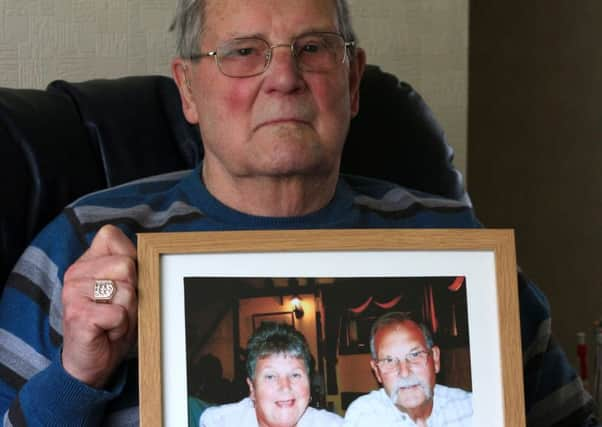Widower wins payout after hospital '˜blunders' that left wife with locked-in syndrome


Edward Hyden, 82, brought in lawyers after the death of his wife, Margaret, at 76.
The mother-of-two had been admitted to hospital with a dangerously low level of sodium in her blood.
Advertisement
Hide AdAdvertisement
Hide AdHer husband says she was treated too rapidly and went on to develop locked-in syndrome, following which further errors in her care were alleged.
The effects of the conditions caused Mrs Hyden, of Sheffield, to suffer episodes of depression which required increasing medical attention.
After further time in hospital she developed pneumonia and died in January 2014.
Following an investigation by Heptonstalls Solicitors, a case was brought against the Sheffield Teaching Hospitals NHS Foundation Trust.
Advertisement
Hide AdAdvertisement
Hide AdSarah Johnson, of the law firm, said: “Clearly the standard of Mrs Hyden’s treatment fell well below that of which should be expected and the failure to treat her initial condition appropriately led to the deterioration of her health and, ultimately, her death.”
In August this year, the trust admitted that elements of Mrs Hyden’s treatment were below standard and settled out of court.
Dr David Throssell, medical director at Sheffield Teaching Hospitals, said: “We always strive to provide the highest possible care to all our patients and so it is with deep regret that some aspects of Mrs Hyden’s care in 2011 were not as we would have expected and as a consequence contributed to a significant deterioration in her condition.”
He said the trust had formally apologised but would like to reiterate how sorry it was.
It has carried out a review of Mrs Hyden’s care so lessons could be learned and, as a result, changes have been made to limit the chances of a similar situation arising.